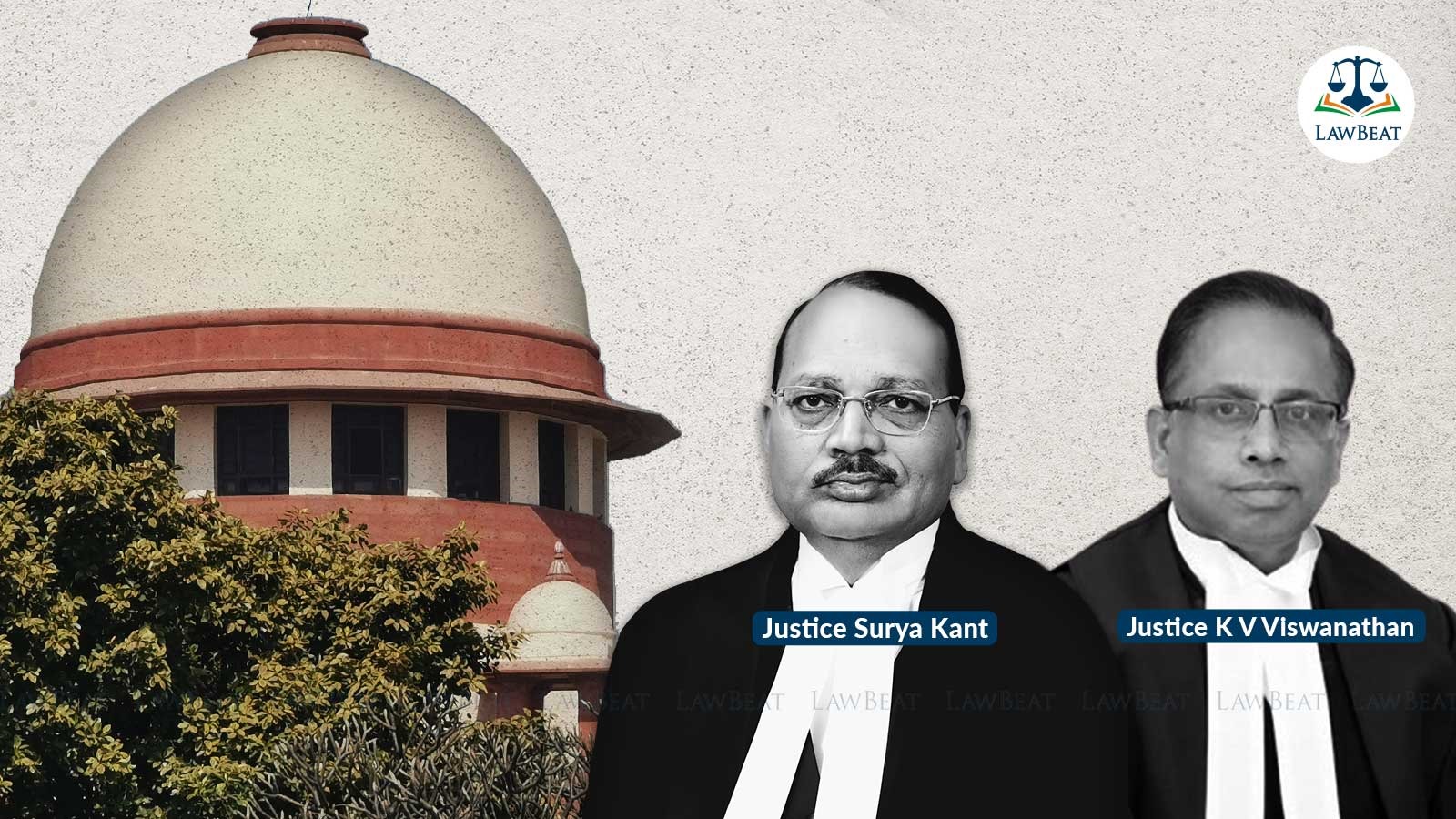Supreme Court directs States/UTs to revisit policy regime on History Sheet

Court has said a periodic audit mechanism would serve as a critical tool to review and scrutinize the entries made to the history-sheet to preserve self- respect and avoid any biases or discriminatory practices
The Supreme Court on Tuesday directed all the States and Union Territories to revisit their policy-regime with regard to maintaining History Sheet by the police against proposed 'bad characters'.
It has asked them to consider whether suitable amendments on the pattern of the ‘Delhi Model’ could be made so that the dignity, self-respect and privacy of the innocent people, who incidentally happen to be the family members of a suspect, is not compromised at any cost.
A bench of Justices Surya Kant and KV Vishwanathan emphasised the value for human dignity and life is deeply embedded in Article 21 of our Constitution.
"The expression ‘life’ unequivocally includes the right to live a life worthy of human honour and all that goes along with it. Self-regard, social image and an honest space for oneself in one’s surrounding society, are just as significant to a dignified life as are adequate food, clothing and shelter," the court pointed out.
The court was dealing with a special leave petition by Delhi's AAP MLA Amanatullah Khan against the Delhi High Court's order of January 19, 2023 dismissing his plea for quashing of the ‘History Sheet’ opened against him and the proposal to declare him as ‘Bad Character’.
In exercise of its suo motu powers, top court has expanded the scope of its proceedings so that the police authorities in other States and Union Territories may also consider the desirability of ensuring that no mechanical entries in History Sheet are made of innocent individuals, simply because they happen to hail from the socially, economically and educationally disadvantaged backgrounds, along with those belonging to Backward Communities, Scheduled Castes & Scheduled Tribes.
During the hearing, the Delhi police was apprised of some disturbing contents of the History Sheet to the extent it pertained to the school going minor children of the appellant and his wife, against whom there was apparently no adverse material whatsoever for inclusion in the History Sheet. The police, accordingly, agreed to re-visit the archaic rules with a view to ensure that the dignity, self-respect and privacy of the innocent people, who incidentally happen to be the family members of a suspect, is not compromised at any cost.
"While we are not sure about the degree of their authenticity, but there are some studies available in the public domain that reveal a pattern of an unfair, prejudicial and atrocious mindset. It is alleged that the Police Diaries are maintained selectively of individuals belonging to Vimukta Jatis, based solely on caste-bias, a somewhat similar manner as happened in colonial times," the bench said.
The court felt a periodic audit mechanism would serve as a critical tool to review and scrutinise the entries made, so as to ascertain that these are devoid of any biases or discriminatory practices. The effective implementation of audits can secure the elimination of such deprecated practices and kindle the legitimate hope that the right to live with human dignity, as guaranteed under Article 21, is well protected, the court said.
"All the State Governments are therefore expected to take necessary preventive measures to safeguard such communities from being subjected to inexcusable targeting or prejudicial treatment. We must bear in mind that these pre-conceived notions often render them ‘invisible victims’ due to prevailing stereotypes associated with their communities, which may often impede their right to live a life with self-respect," the bench said.
Court further noted that the decision taken by the respondent authorities to the effect that the History Sheet is only an internal police document and it shall not be brought in public domain, largely addresses the concern expressed by us in the beginning. "Secondly, the extra care and precaution, to be now observed by a police officer while ensuring that the identity of a minor child is not disclosed as per the law too, is a necessary step to redress the appellant’s grievances. It will surely prevent the undesirable exposure that has been given to the minor children in this case", added the court.
The court directed the police authorities to give effect to the amended standing order of March 21, 2024 in the case of the appellant.
It has also directed the Commissioner of Police, Delhi to designate a senior police officer, in the rank of Joint Commissioner of Police or above, who would periodically audit or review the contents of the History Sheets and will ensure confidentiality and a leeway to delete the names of such persons/juvenile/children who are, in the course of investigation found innocent and are entitled to be expunged from the category of “relations and connections” in a History Sheet.
"It goes without saying that if a Police Officer of Delhi Police is found to have acted contrary to the amended Standing Order and or the directions given herein above, prompt action against such delinquent officer shall be taken," the judgment adds.
Registry has been asked to forward a copy of the instant judgement to the Chief Secretary and Director General of Police of all States and Union Territories to enable them to consider and comply with the directions as early as possible but not later than six months.
Case Title: AMANATULLAH KHAN vs. THE COMMISSIONER OF POLICE, DELHI & ORS.
